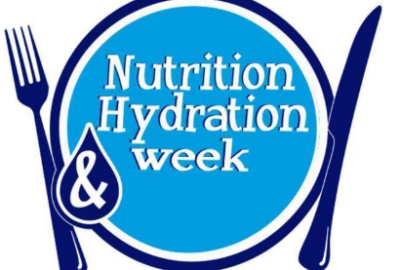Celebrating locally sourced produce
The journey our food undertakes has increasingly been in the spotlight as consumers become more aware of what they are eating, how it impacts the environment and how both workers and animals are treated. Our panel of experts this month were exceptionally passionate about sustainable sourcing and local provenance. If you are yet to kick-start a locally-sourced menu, inspiration doesn’t come better than this!
Rob Boer
Head Chef, The Mutton at Hazeley Heath
Using locally sourced produce has always been important to me, as long as the quality aligns with the level of food and service we provide. Luckily in Hampshire we are blessed with lots of great local suppliers. From my experience you always get better customer service and produce when you’ve developed a face-to-face relationship with the supplier.
We recently held an asparagus dinner with asparagus from Secretts Farm – dishes included strawberries with white asparagus ice cream. Our cheeseboard is all local, three out of four cheeses are from award-winning Village Maid Cheese. We also regularly hold joint events and dinners with suppliers to help boost their customer base.
Dave Wall
Chef Owner, The Unruly Pig
Local provenance has always been a key part of our offering – about 70% of our ingredients are sourced within 38 miles. That said, we never source locally at the expense of quality. We will buy further afield if the local ingredient is not of optimum quality.
Most of our dishes therefore contain many local ingredients whether it be an Orford lobster pasta with courgettes, Rendlesham Forest saddle of venison or Tuddenham asparagus and Suffolk crab tart. All of these core ingredients come from just up the road!
Paolo Pomposi
Head Gelato Chef, Badiani
Depending on the recipe, we source 60% to 90% of our ingredients locally within the UK. This primarily includes fresh dairy products like milk and cream, as well as eggs and sugar. Sourcing locally is more cost-effective than importing from Italy and significantly reduces our carbon footprint, enhancing sustainability. Since Brexit, we’ve focused on increasing our UK sourcing to mitigate the high costs and logistical challenges of importing goods
Buontalenti is our world-famous flavour of gelato, made with only four high-quality local ingredients: milk, cream, sugar, and eggs. This simple yet rich and creamy flavour originated in the 1960s and is named after Bernardo Buontalenti, the Florentine inventor of gelato.
Ben English
Operations Director, Marrfish Ltd
Use fish species with a high oil content for grilling as they will withstand high heat. Mackerel is one such oily fish which performs well on the grill and in the summer months it will have been caught in the most sustainable manner, using long lines loaded with shiny hooks, in boats operated by just one or two fishermen.
For a cost-effective option, try coley as an alternative to cod or chicken, perfect steeped in a bold jerk marinade. The firmness of this fish means that it doesn’t break up as easily as cod, and it takes on strong flavours really well. To match the robust flavour, finish with an avocado and mango salsa and a squeeze of lime.
Doug Crampton
Head Chef, Eight at Gazegill
Eight at Gazegill is a new farm to table restaurant with sustainability at its heart. Based on the Gazegill Organics farm which has been in owner, Emma’s family for 500 years, they farm only traditional and indigenous breeds of animals which suit a low input, low impact attitude to agriculture. The majority of the meat is produced on the farm, the vegetables are sourced from local growers and organic farms and our menu showcases the seasons, by using largely seasonal produce.
The Forager Chipolata snack on the menu has zero food miles. The pork comes from Gazegill’s pigs, seasoned with foraged wild garlic and alexanders. It’s then wood roasted with wood from the farm and glazed in Gazegill’s honey and last years dried hogweed seeds.
Kevin Barber
Head Chef, MARA
The restaurant was named after the Gaelic term for ‘The Sea’ and since opening in 2021, has developed a seasonally inspired menu which shifts throughout the year to reflect the best local produce on offer. The team works to the principles of S4+0, where each menu is filled with produce which is Scottish, seasonal, sustainable, and slow with an effort to achieve the target of zero waste.
Much of the produce served is sourced within 50 miles of the restaurant, and notable local suppliers include Highland Fine Cheeses and locally raised venison. Thanks to the location of MARA, diners visit with the intention of sampling the best of Scotland’s larder. Locally-landed seafood including langoustines, and hand dived Orkney scallops are guest favourites and are constant features on the menu.
Richard Bainbridge
Chef proprietor, Benedicts
Benedicts use seasonal local produce because it’s important to our customers and fundamental to our ethos. It’s an ethical choice and the quality is superior, keeping food miles down and helping to support local producers. Our menu is a celebration of local, seasonal ingredients and this really guides our dishes. Currently we are serving Halesworth Lamb with broad beans, fennel & mint jus and BBQ Leek with Suffolk Oyster Mushroom.
In essence, our producers dictate our ingredients as we want the best quality on our diners’ plates. Climate change also plays a part as this affects seasonality. We are seeing shorter seasons and changing periods of seasonality. Asparagus now comes in April not May for example.
Johnnie Crowe
Executive Chef, Nest Farmhouse
At Nest Farmhouse, we’re working with some incredible local suppliers and using produce directly from Docking Lodge Farm where the restaurant is situated. Sourcing locally is a more sustainable practice, which has always been really important to me – it’s better for the environment and the food is fresher. All of our dishes at Nest Farmhouse include local produce – we have a Norfolk Beef Tartare starter using Heath Farm Shop cattle raised less than 5 miles away. Our Lamb main is topped with an array of veggies from West Lexham. Even our coffee caramel custard dessert uses Salt Marsh coffee aged at Burnham Overy Staithe Boathouse. The amount of rain and sunshine is definitely affecting the growing seasons.
Alistair Craig
Executive Head Chef, The Montagu Arms
As a hotel rooted in its country heritage, the concept of forest-to-fork dining is important to our offering, and our customers have grown to expect the fresh flavours that come with seasonal recipes. We spend time working with carefully selected local suppliers that know the area well and can source top-quality produce, direct from the New Forest. We’re also proud to have our very own Kitchen Garden where we grow anything from Jerusalem artichokes to edible flowers, so we have confidence in the ethicality of our ingredients.
Right now, we have delicious Hampshire lamb rump and sirloin on the dinner menu at our traditional country house dining room, The Terrace, but this changes daily depending on what we can source, offering freshness and variety to our guests.
Callum Graham
Head Chef, Bohemia
We use as much locally sourced produce as possible in the Bohemia Restaurant kitchen, such as in our “La Chasse Farm” Courgette Flower Stuffed With Jersey White Crab & Scallop Mousse, Tomato & Basil. Everything in this dish is from Jersey and we are fortunate to have such a wonderful bounty of ingredients on the island that we take pride in serving to our guests, who a lot of the time, are travelling from mainland UK, so it gives us a chance to give them a true taste of what the island has to offer.
Our guests are what drives our commitment to serving only the highest-quality, locally sourced produce. Farm-to-table is something we’re not only known for, but what our guests have come to expect from us. More and more, they’re interested in knowing where their food has been sourced, whether that be the local fish monger or micro-farm down the road – it tells a really nice story.
Neil Keevil
Head Chef, The Prancing Stag
The provenance of food is something that customers are becoming more aware and appreciative of, and we have had great support from our regular clientele who like to engage with the front of house staff in finding out where the produce has come from. In Scotland we have one of the finest natural larders in the world, so why would you consider importing inferior products?
We change dishes on our menus almost weekly. We do this so that we can use the best available seasonal produce. Some of our recent dishes that scream local and seasonal are our asparagus with crispy egg yolk and hollandaise sauce or our strawberry pavlova.



